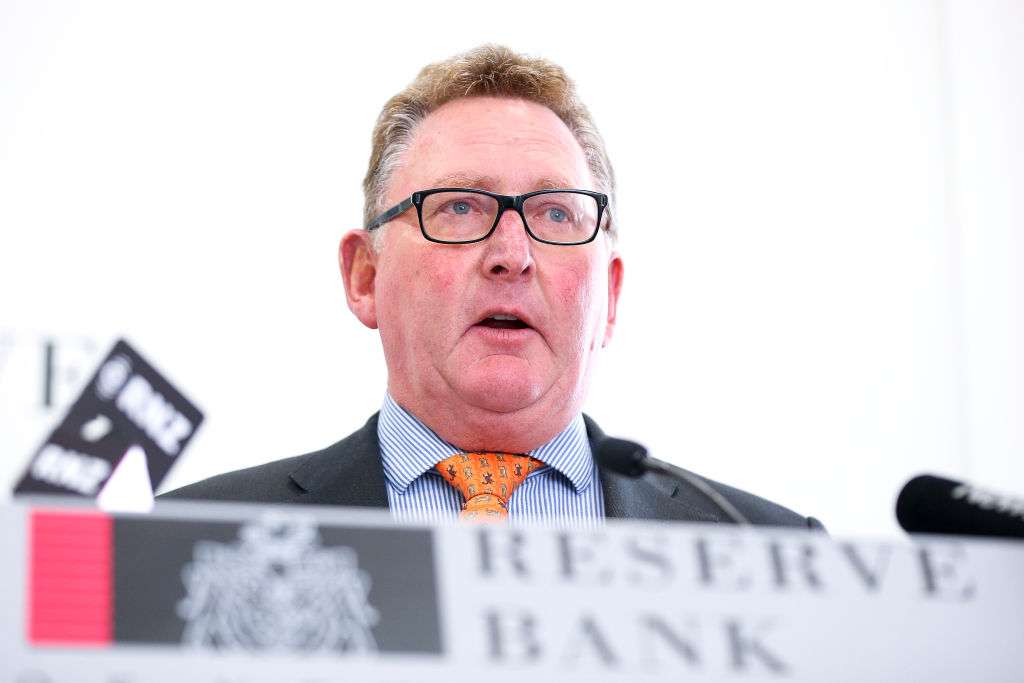With return of the 40% deposit rule looming large, some in the housing industry say the measure probably won’t do much to slow the frenzied market.
The Reserve Bank has signalled that it will reinstate its loan to value ratio (LVR) restrictions in March, almost a year since it suspended the rules in a bid to ease the pain of the Covid-19 lockdown.
READ MORE: Find out if your suburb is rising or falling
Investors are set to be hit with bigger deposit requirements – from 20% of the total value of the loan to 40% – although some banks have already upped their requirements.
Start your property search
Lesley Harris, from the First Home Buyers Club, said that while the return of the LVR restrictions could reduce the amount of competition first home buyers face from investors, they would unlikely help solve what she is the big problem in the market: the “extremely tough” bank lending and debt servicing criteria.
“I suppose the LVR restrictions coming on are not going to help or hinder first home buyers. They’re not going to make things better for them but I don’t know whether it’s going to make things hugely worse. The situation is already quite a diabolical.”
A lot of bank home loan applications were being declined, she said. “Time will tell but it’s certainly pretty grim for first home buyers. I think people are feeling really, really frustrated with prices going up and banks’ lending criteria not easing up but just getting tighter.”
The best advice she had for those looking to get mortgage and buy in the current market was “to be the best possible customer you can be” to the banks.

Economist Tony Alexander: “The 40% LVR for investors basically stopped Auckland prices rising.” Photo / Supplied
“Get rid of your debt and get as much of a deposit together as you possibly can. When you’re in that low deposit space it’s not a win all the way through, because you’ll have to pay margins on top of standard interest rates. You don’t get the same interest rates as people who’ve got 20 per cent deposit or more,” Harris said.
She said she recent heard of one situation “where three singles had gone in together to buy a house and the deposit was gifted by mum and dad but they still couldn’t get lending”.
“Here are three people with really good incomes that will have been declined because the bank wants to see where the deposit has come from,” she said.
She said that while a toughening of deposit rules could put off some investors, others would find ways to stay in the market.
“They can withdraw money from a revolving credit facility, or something based against another property to put towards bolstering the deposit of the new ones. There are different means and ways of getting around it,” she said.
John Bolton, owner of Squirrel mortgage brokers, said the impact of higher LVRs would be minimal as banks had already moved to put the restrictions in place.
“We’re talking about the Reserve Bank making it official in March but the reality is all the banks have already moved,” he said.

Reserve Bank governor Adrian Orr. The Reserve has signalled the return of LVR restrictions in March. Photo / Getty Images
“Price growth might slow a tiny bit and while it will take some people out of the market I don’t think property investors are a big driver in this market at the moment – they might be in the provinces but they’re certainly not in Auckland.”
The real drivers of the market, he said, were first home buyers and developers.
“There are a lot of new developments coming on stream. What happens is developers are buying brown sites, so they’re buying existing property, removing the house and building terraced townhouses and they’re paying a lot for 800sqm sections.
“If you look at land prices they’re a big contributor to why prices are going up because builders and small-scale land developers have been buying up anything over 800sq m that comes to market.”
Adam Thomson, director of Ray White Manukau, in South Auckland, doesn’t see the LVRs rules having an effect on prices in his patch.
“We’ve got a good balance of investors and home buyers and if there’s less investors there’s going to be more home buyers. Also, there are other lenders out there. There are ways and people are already looking at that.”
Thomson pointed out that only five per cent or less of investors owned multiple properties.
“The rest are one-offs or they’re not affected by it. It will affect a small percentage but because of the amount of demand at the moment I don’t see it having an effect on prices.”
However, economist Tony Alexander believes that a 40% deposit rule for investors would slow the market.
“That’s what we learned in 2016,” he said.
The 20% requirement “didn’t really do much”, he said, and the 30% requirement from 2015 “had a very temporary impact”.
“It only lasted three or four months then people went back buying again but the 40% LVR for investors effective from July 2016 basically stopped Auckland prices rising,” Alexander said.
“[Auckland prices] sort of went nowhere for three years, and the pace of house price growth halved in the rest of the country.
“That’s why I’m of the opinion there’s a very high chance that when the Reserve Bank fully confirms the LVRs are coming back they will go for 40% for investors and 20% for owner occupiers.”
Coming at the same time as Residential Tenancy Act changes, the market will slow, Alexander thinks.
“Some of the longer-term investors who have seen this sort of thing before will now be thinking about getting rid of some properties that are in need of maintenance. It’s a fantastic period for them to do that.”

